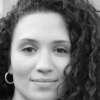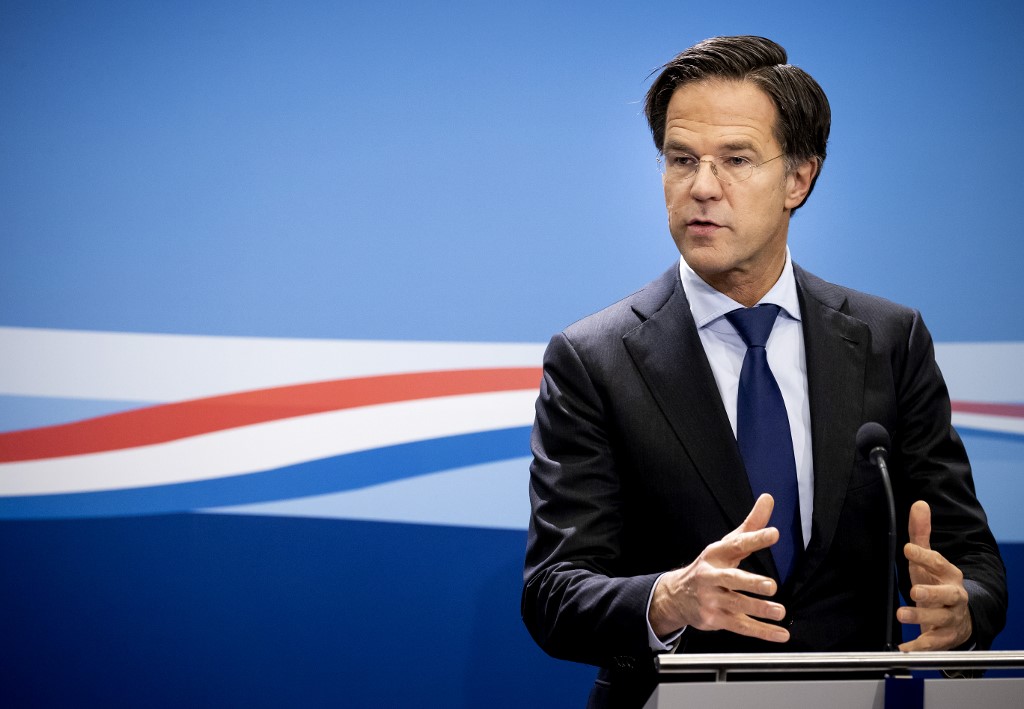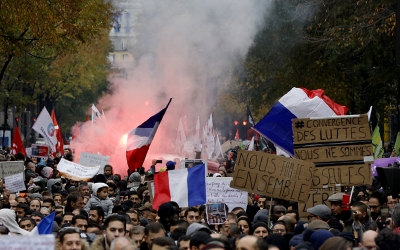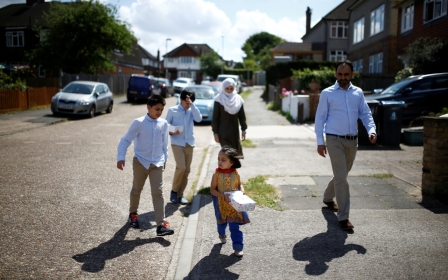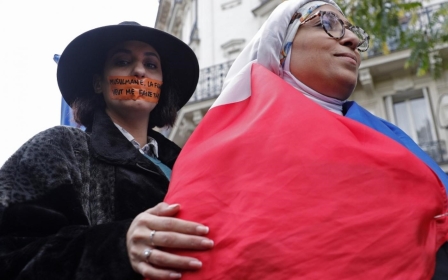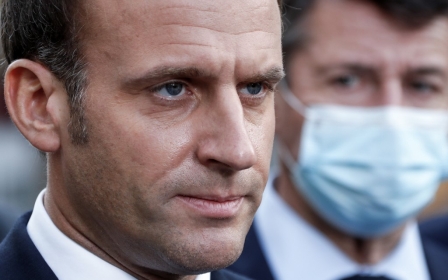How the Netherlands is curbing the civil liberties of its Muslim population
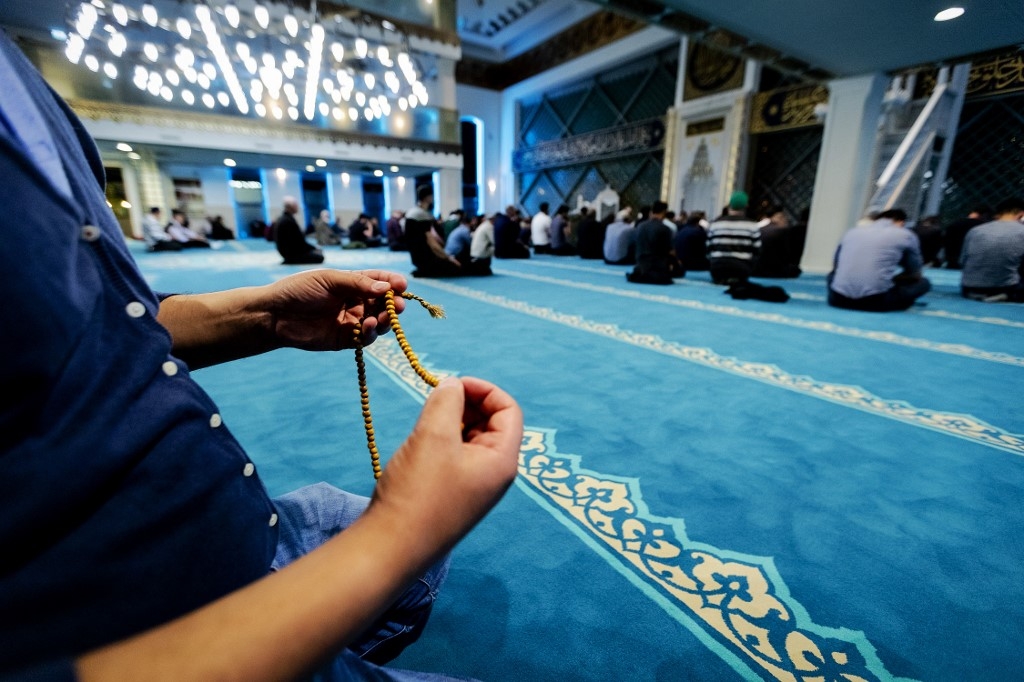
Across Europe, political parties are demonstrating, once again, that election victories are most easily obtained on the backs of Muslim populations.
At the end of last year, all eyes were on France in the wake of President Emmanuel Macron’s so-called anti-separatist laws, which sought to further limit freedoms for Muslims in the country. His attempts to compete with the far-right National Rally, led by Marine Le Pen, and appeal to right-wing voters by whipping up racism has sparked outrage across Muslim-majority countries.
This was not the case when the Netherlands recently followed in France’s footsteps. Mosques will face further monitoring over “foreign influence”, and their finances will be under even heavier scrutiny, after a decision made by the Dutch parliament last week. The motion, put forward by MP Bente Becker from the leading VVD party, was overwhelmingly voted through. Only one party, Denk, voted against the proposal.
It turns out that the democratic institutions of the kingdom are only meant for some. Others - namely, Moroccans and Turks - are just here to do the jobs no one else wants
Similar to the plans laid out by Macron, Muslim organisations and institutions in the Netherlands could now be shut down or have funding curbed if they are accused of “undesirable behaviour”. This follows the establishment of a parliamentary interrogation committee on “unwanted influence from unfree countries”, which last year issued a report describing how external (non-EU) forces were controlling Dutch mosques through often-unaccountable money streams.
Now Dutch authorities will have more power to block these “foreign influences” and reprimand institutions through penalties.
New MEE newsletter: Jerusalem Dispatch
Sign up to get the latest insights and analysis on Israel-Palestine, alongside Turkey Unpacked and other MEE newsletters
Muslims are once again being depicted as barbaric people who require discipline in order to espouse so-called Dutch values. The state muscles its way into their religious life, even when they have committed no wrong. The mosque as a shadowy institution of undue political influence, at the beck and call of dangerous foreign powers, is a classic racist trope. Such tropes are used time and again to justify the repression and destruction of civil liberties.
This particular recipe, which governments across Europe are adopting, reduces problems - rooted in a variety of economic, political and societal factors - to Islam, and thus concludes that the religion must be “controlled” and monitored, with theological content shaped by the state to espouse the beliefs of the land. Those beliefs, however, always remain unclear.
The Party for Freedom - one of the Netherlands’ largest far-right parties - can speak, for example, about deporting and de-Islamifying Muslims, while also claiming to defend “Dutch cosiness”. The demands of Muslim institutions usually include avoiding any critique of the state and its foreign policy, imposing a depoliticised religious agenda, and sometimes even collaborating with state forces by accepting heavy surveillance and information-gathering among the faithful as a means of “protection”.
Resisting racist practices
These developments, as political parties in the Netherlands rally for power in the lead-up to national elections in March, were perhaps unsurprising to those who have long been calling out and resisting the racist practices of the Dutch state. Muslims and migrants are not only an easy target, but a necessary one, given the recent political upheaval over the government’s poor handling of the Covid-19 pandemic.
The likes of the ruling VVD see growing competition on their right from nationalist figures such as Geert Wilders, the leader of the Party for Freedom. In response, they have long normalised Wilders’ views and policy proposals, including the burqa ban introduced in 2019.
It seems to matter little, in this context, that the Dutch government was recently embroiled in a large-scale scandal concerning child benefits, which involved the institutionally sanctioned targeting of people of colour and migrants. The Netherlands’ tax authority falsely accused more than 20,000 families of fraud; of those, more than half were targeted on the basis of their dual nationality and ethnicity.
Names that appeared “foreign”, for example, were used as a key indicator and led to people being wrongfully asked to pay back thousands of euros. This left families bankrupt, with some even forced to sell their homes, and led to suicide attempts and divorces. An estimated one-third of the victims were Turkish-born, while many others were of Moroccan or Caribbean heritage. The news caused an uproar across the country, and the Dutch government was forced to resign.
Yet, this large-scale exercise in institutional racism and xenophobia, which rocked the Netherlands so considerably last month, clearly did not generate enough outrage to shame MPs into refraining from voting through even more discriminatory policies. In fact, in the Dutch media, the issue of institutional racism and organised targeting of people of colour was barely mentioned in the coverage of the scandal.
Getting organised
And God forbid that Muslims may respond or get organised. When, a few months ago, 100,000 Dutch Muslims used their constitutional rights to force parliament to debate the possibility of forbidding insulting the prophet, by signing a petition launched by a local imam, they were denounced as dangerous, Islamists, and anti-Dutch. Wilders declared that those who signed the petition did not belong in the Netherlands.
Similarly, when the Dutch Green party announced that it would stand a young climate activist in the upcoming elections, Kauthar Bouchallikht, who happens to be a woman of colour who wears a headscarf, she was immediately targeted and smeared as a dangerous Islamist by the far-right. Their accusations were uncritically relayed by the mainstream media.
It turns out that the democratic institutions of the kingdom are only meant for some. Others - namely, Moroccans and Turks - are just here to do the jobs no one else wants, for little pay, and are expected to keep their mouths shut.
Political leaders and their parties across the political spectrum, from the “far left” to the far right, have demonstrated that they are more than willing to throw people of colour, migrants and Muslims under the bus in order to maintain power. This has not only facilitated the growth of far-right electoral politics, but also hostility towards these communities from far-right street groups such as Pegida, who have been mobilising and taking advantage of a climate of hate being whipped up.
Far-right riots
Yet, if the recent weeks of riots in opposition to the Covid-19 restrictions and curfews enforced by the Dutch government have shown anything, it is that the current political moment is far from straightforward.
Far-right protesters were out in the hundreds across cities such as Rotterdam and Amsterdam, breaking curfew, smashing shops and restaurants, and opposing lockdown rules. While some were the same people calling for the deportation, criminalisation and even death of Muslims, racialised communities and migrants, they were also triggered by any hint that their own freedoms could be limited. So much, it seems, for Dutch cosiness.
It is left to communities themselves to organise and fight back against the growth of racism, in both the streets and parliament
The so-called "war on terror" agenda depends on Islamophobia to narrow civil liberties, target political dissent and introduce mass surveillance through policing and technology. In a country such as the Netherlands, so renowned for its defence of such rights, one might expect that the defence of Muslims’ rights should be obvious. Yet, it is clear that those in power are happy only to pay lip service to, rather than to apply, such “Dutch values”.
It is left to communities themselves to organise and fight back against the growth of racism, in both the streets and parliament.
The left, the unions and social movements must join that struggle if they do not want their own organisations to be next in line, as the ongoing expansion of so-called anti-radicalisation policies in the UK demonstrates. They should do so for their own sake, as much as for that of the Muslims being scapegoated.
The views expressed in this article belong to the author and do not necessarily reflect the editorial policy of Middle East Eye.
Middle East Eye delivers independent and unrivalled coverage and analysis of the Middle East, North Africa and beyond. To learn more about republishing this content and the associated fees, please fill out this form. More about MEE can be found here.


